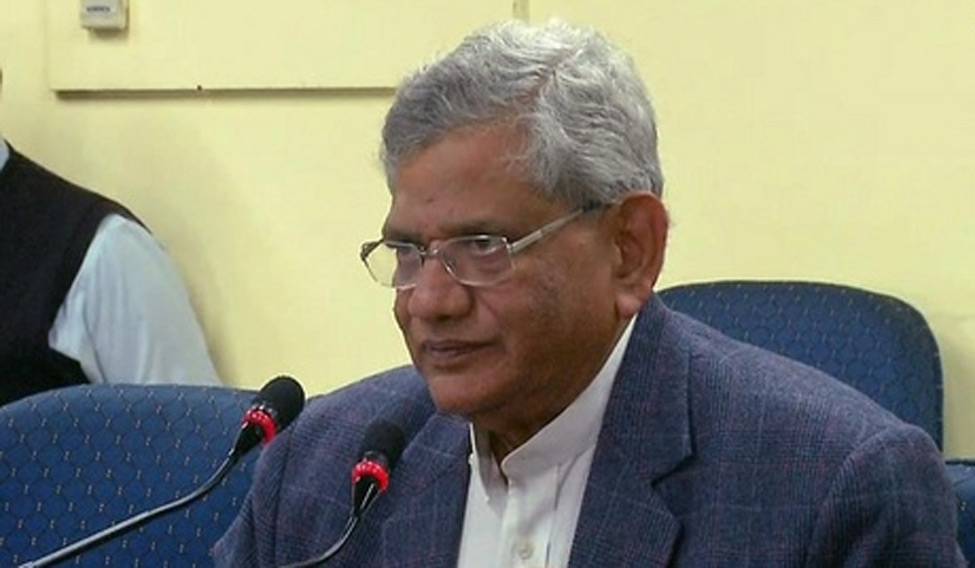Terming electoral bonds as being violative of the Constitution, CPI(M) general secretary Sitaram Yechury on Saturday said the Narendra Modi government's move to introduce such bonds, projected as a way to clean up funding of political parties, would in fact increase opaqueness in donations made to the parties and was reflective of “crony capitalism of the highest order.”
Yehcury, who has moved the Supreme Court seeking scrapping of electoral bonds, told mediapersons that the new mode of making donations to political parties would lead to shell companies being set up, through which black money will be laundered.
Foreign companies, he said, would also now be able to donate to political parties. “Nobody will know who is donating to which party, and there will be greater opaqueness with regard to the source of donations received by parties,” he said.
“In 2016-17, 89 per cent of all corporate donations went to the ruling BJP. Just one per cent of India's population has cornered 73 per cent of all additional wealth generated in 2017. And in the last three years, more than Rs 2 lakh crore of NPAs have virtually been written off by the government... Put together, this is nothing but a perfection of the process of crony capitalism,” he said.
Yechury's petition to the Supreme Court states that electoral bonds are ultra vires of the Constitution, and is in violation of the Right to Information. The Supreme Court, acting on the petition, has sought responses from the Centre and the Election Commission.
The CPI(M) leader also referred to the government bringing in a 'surreptitious amendment' in the Finance Bill to legalise, with retrospective effect, foreign funding received by political parties.
“In this Finance Bill, the government has smuggled in a new amendment that legalises the foreign funding received by political parties with retrospective effect, starting from 1976, the day FCRA was actually legislated,” said Yechury.
He pointed out that a large majority of funding by foreign companies went to the two principal parties—the BJP and the Congress.
A similar amendment had been made in the FCRA terms in 2016, legalising with retrospective effect, starting from 2010, donations made by foreign companies to political parties.
“Both the Congress and the BJP have received huge amounts of money from foreign companies. And if such an amendment is not made, they are liable to be prosecuted under Indian law,” Yechury said.






